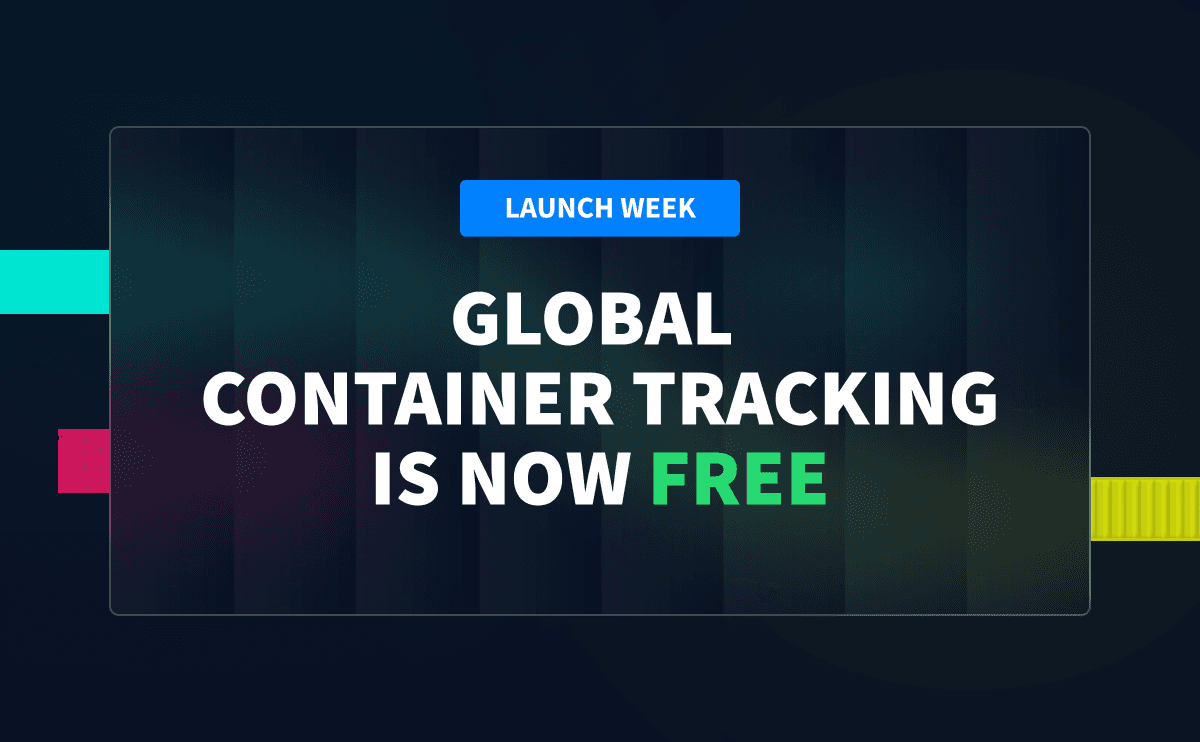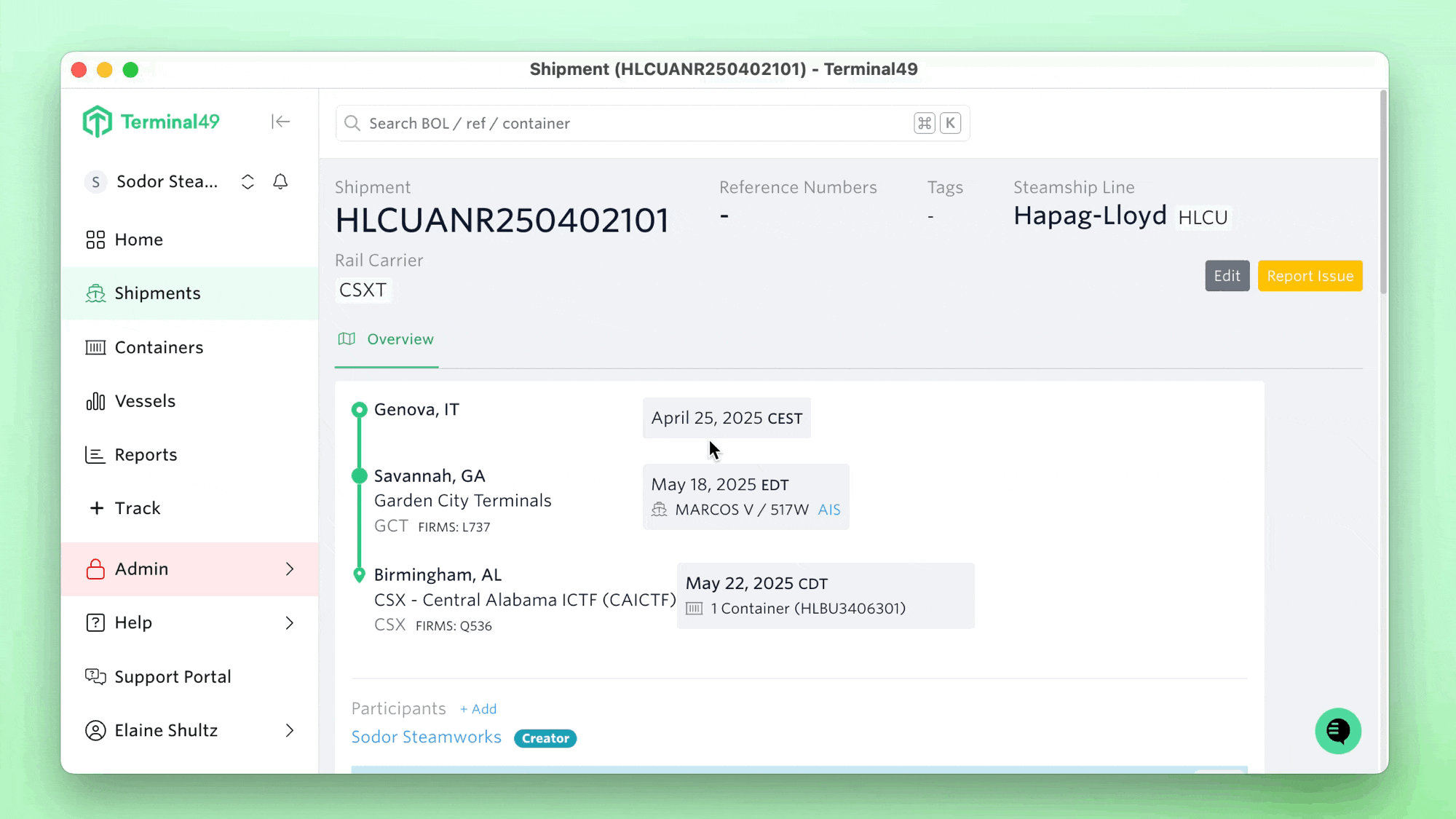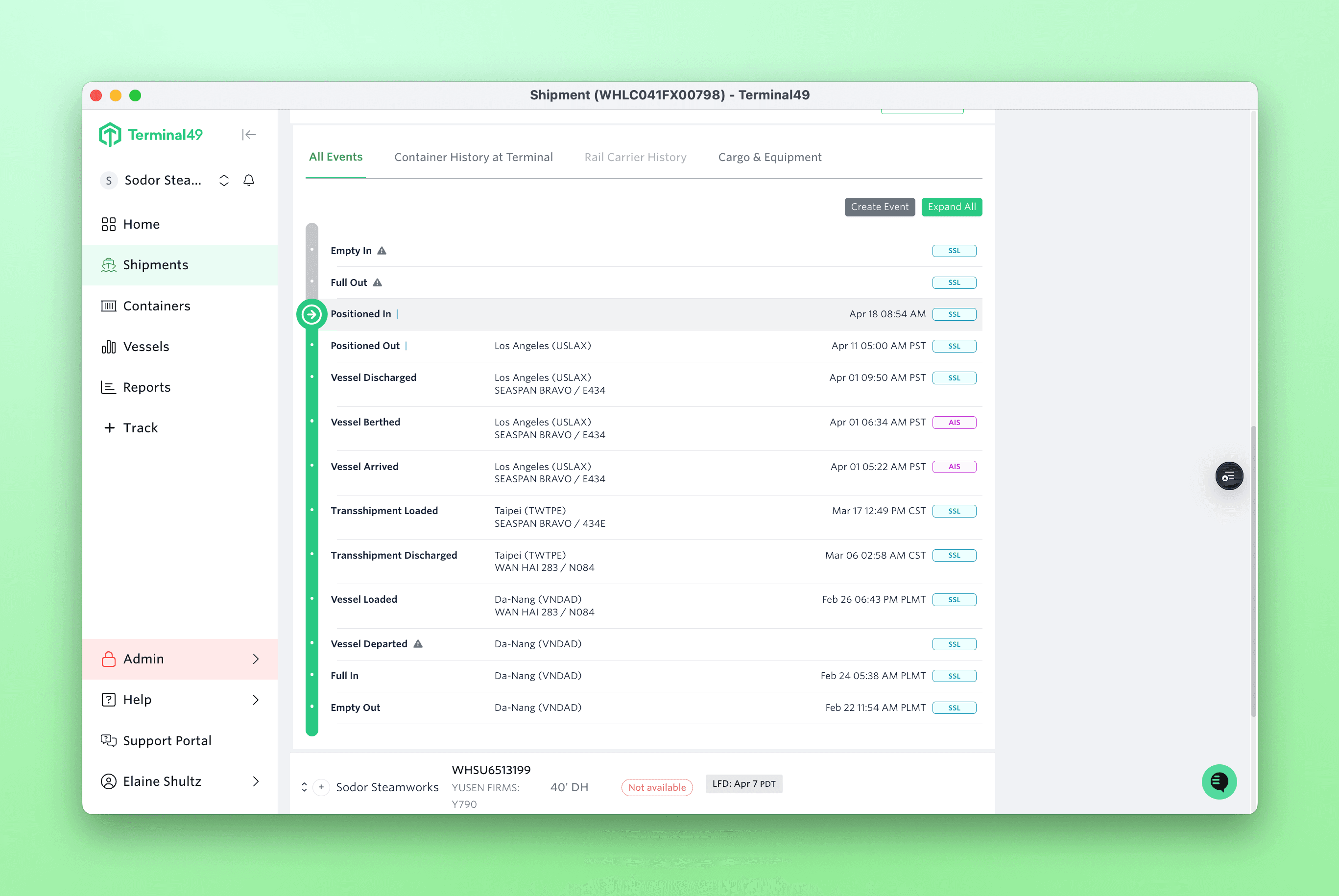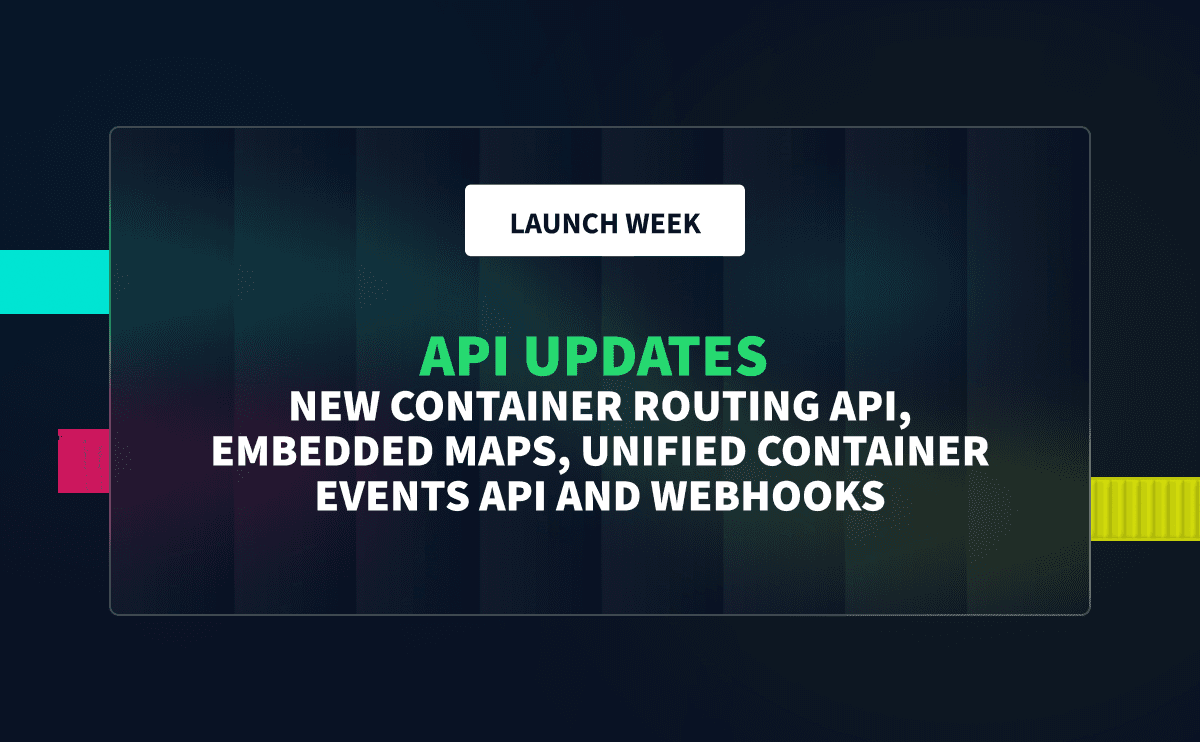In an increasingly volatile market marred by hard-to-predict consumer demand, freight operations can get complicated, especially when companies look to build efficiency into the process. Managing many workflows, people, and moving parts to get cargo from point A to B successfully can be tedious, but you can have a much-simplified experience with technology solutions. This is why tracking technology in freight operations is a crucial tool.
It allows for monitoring the process, which, when done right, can save time, reduce costs, and enhance overall logistical efficiency. In this article, we will explore the role tracking technology plays in enhancing shipping operations in the freight industry. And how Terminal49 can help.
The Role of Technology in Efficient Logistics Operations
When leveraging tracking technology in freight operations, the ultimate goal should be to simplify the process, increase operational efficiency, and improve customer satisfaction through better experiences.
Here is how the technology can accomplish those:

1. Enhanced Visibility and Real-Time Updates
Transporting freight from one location to another will typically have blind spots. Yes, you want information, but more importantly, you want it on time. This is the essence of real-time updates.
Tracking technology provides you with a cheaper and simplified approach to ensuring visibility and transparency. Sure, you can accomplish some semblance of real-time updates by relying on the people facilitating the shipment, but that will be mostly ineffective and plagued with inaccuracies. With real-time updates through tracking technology, you have access to everything happening during freight logistics in real-time.
From fuel consumption to the speed and condition of the cargo and vessel used during the shipping process, real-time updates tell you all you need to know about various factors that impact freight.
With the right tech application or platform, you can also get information on the conditions of the freight transport. And potential issues or challenges that could derail the freight operation. Implementing predictive analytics informs you of such and allows you to respond actively to the problem by identifying solutions that will negate such a problem or situation.
All of these are the benefits of visibility and are only achievable through real-time tracking made possible through the proper application of technology.
2. Increased Efficiency of Operation
The resources and infrastructures deployed during a freight logistics operation cost a lot of money. It, therefore, makes sense for a typical freight operation to be quite expensive and for you to want to know to ensure the efficiency of the entire operation.
Lack of overall efficiency can be costly to the supply chain or freight forwarding operation. This is especially the case when there are no structures and well-planned processes, resulting in an inadequate utilization of available resources.
With tracking technology, you can effectively plan the next steps of your freight operations and set up structures to optimize all the available resources. This allows you to speed up the freight process, improve cost savings, and enable all-around efficiency throughout the freight operation.
Tracking technology also enhances the use of other technology solutions in the freight operation. Tools and applications, like route optimization and transportation management systems, can be leveraged effectively when you have the tracking technology all sorted.
3. Customer Service And Data-Driven Decision Making
Shippers and customers are increasingly interested in having a granular understanding of their freight process. In fact, a significant portion of the operator’s collective energy goes into answering a variety of freight process inquiries from business partners, including delivery routes, arrival time, and shipment status.
With tracking technology, you can answer or resolve most of these questions better. Customer service platforms could also provide customers with real-time updates on every step of the shipment process, including notifications for every stage of the shipping process.
You can also leverage tracking technologies to improve the decision-making of freight operations. Tracking solutions also come with tracking data. Freight forwarding companies can typically analyze these and key performance indicators to identify problems or areas of improvement in the shipping process.
4. Improved Supply Chain Security
Security of people, vessels, and cargo during shipment is critical. While businesses could have taken this for granted for decades, recent geopolitical tensions across the Red Sea and across the wider Middle East region reflect a more morbid situation today.
With the help of tracking technology, you can carefully monitor and identify potential issues or security threats during the freight process. This way, you can take proactive steps like rerouting the shipment or finding another solution to the threat. Doing this will allow you to avoid the loss of any of the three critical parts of the freight operation process.
Some tracking technologies used in freight operations today can help deter theft by providing real-time location information and alerting authorities in case of suspicious activity.
With tracking technology, you have some sense of security and assurance in the safety of your resources and cargo. It helps promote efficiency and increases the productivity of the freight operation. This is as opposed to going through the freight process without any safety net, leading to mistakes, longer or unnecessary routes, and disruptions.
Build a Competitive Advantage over Freight Operations with Terminal 49
The Terminal49 platform is a robust shipping application that ensures you can track and trace your cargo from the comfort of a dashboard. With our platform, strategic planning becomes so much more simplified.
With our platform, you can expect instant shipment data, current status and terminal availability, real-time exception notifications, and all the essential tools needed to help you improve the efficiency of your freight operation. Integrating our API into your existing workflows will ensure you have a more streamlined documentation process.
This way, you can identify areas of your freight operations that need cost reduction, ensure freight security, and streamline the entire logistics and inventory management process.
Frequently Asked Questions
Q1. What are the different types of tracking technology used in freight operations?
There are a few of them, and they include GPS tracking, cellular networks, sensors, and RFID.
Q2. How accurate is tracking technology for freight?
It depends on the tracking technology, but with GPS, you have high accuracy of up to a few meters. On the other hand, tracking may be less precise for cellular networks.
Q3. What are some of the security concerns associated with tracking technology?
There are a few of them, but here are some of the most concerning:
- Data breaches can expose sensitive information about shipments.
- Real-time location data could potentially be used for theft attempts.
P.S: Robust data security protocols entailing high-level asset or fleet tracking are crucial for mitigating these risks.
Q4. What are the potential costs associated with implementing tracking technology?
The cost depends on the specific technology used, the number of shipments tracked, and any subscription fees. However, most tracking tech pays for itself in the long term. Technology solutions like artificial intelligence are in high demand and could be another cost saver.





